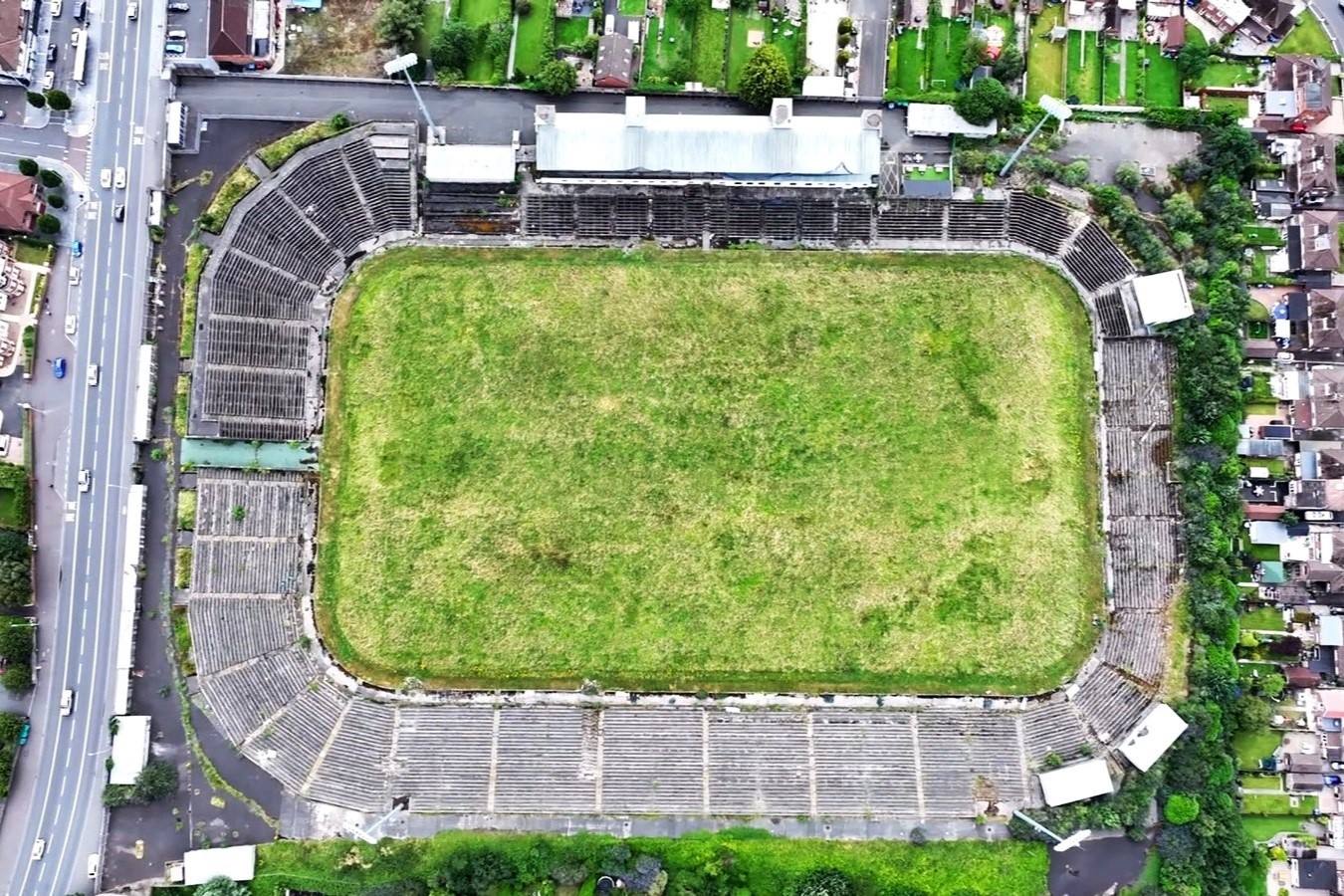
Casement Park in West Belfast is more than just a sports ground; it's a symbol of community, history, and cultural identity. Named after Irish revolutionary Roger Casement, this iconic stadium has been a cornerstone of Gaelic games in Northern Ireland since 1953. From hosting historic Ulster football finals to being occupied by the British Army during the Troubles, Casement Park has seen it all. Currently, the stadium is undergoing a significant redevelopment, aiming to transform it into a modern 34,500-capacity venue. Despite challenges like funding issues and toxic contamination, the future of Casement Park holds promise, especially with its inclusion in the Euro 2028 bid.
Key Takeaways:
- Casement Park in Belfast has a rich history, hosting historic Gaelic games and cultural events. Despite challenges, there are plans to redevelop it, offering a unique opportunity for the future of Gaelic games.
- The stadium, named after Irish revolutionary Roger Casement, faces funding and toxic contamination issues. However, there are hopes to restore its former glory and make it a vibrant hub for Gaelic games in Northern Ireland.
Casement Park: A Historical Landmark in Belfast
Casement Park, located in West Belfast, has been a significant venue for Gaelic games for over seven decades. Named after the Irish revolutionary Roger Casement, this stadium has a rich history and a promising future. Let's dive into some fascinating facts about this iconic sports ground.
-
Location and Name: Casement Park is situated on Andersonstown Road in West Belfast. It is named after Roger Casement, an Irish revolutionary executed in 1916 for his role in the Easter Rising.
-
Opening Ceremony: The stadium opened on June 14, 1953. The ceremony included an urn of soil from Semple Stadium and Croke Park, carried into the ground by relay runners from Thurles.
-
Capacity: Initially, Casement Park could hold 40,000 spectators. The proposed redevelopment aims to reduce this capacity to around 34,500.
Significant Events and Games
Casement Park has hosted numerous historic events and games, making it a cornerstone of Gaelic games in Northern Ireland.
-
Historic Significance: The stadium has hosted many Ulster football finals, with the last one held in 1971. It has also been a venue for significant hurling and camogie matches.
-
Notable Games: One of the biggest games was the 1961 Ulster football final, where reigning All-Ireland champions Down met Armagh. Over 44,000 spectators attended, with Down winning and later lifting the Sam Maguire Cup.
-
Match for Michaela: In 2012, nearly 20,000 people attended the Match for Michaela, a charity event held at Casement Park, highlighting its community importance.
Development and Challenges
The development of Casement Park has faced numerous challenges, from funding issues to toxic contamination.
-
Development Background: The stadium's development was a vision of the Gaels of Belfast to create a venue rivaling those in other major Irish cities.
-
Original Funding: Initial fundraising efforts aimed to raise around £30,000, but the final cost was approximately £100,000.
-
Land Acquisition: The CPR identified two fields covering 12.5 acres outside the city boundaries for the new stadium. Additional land was purchased at Shaws Road for other sports pitches.
-
Stands and Seating: The main stand was originally an old aerodrome hangar from St Angelo Airfield. Spectators stood on a sloping terrace for a good view of the pitch.
Community and Cultural Impact
Casement Park has played a vital role in the local community, hosting various events and supporting cultural activities.
-
Underage and Juvenile Events: The stadium was crucial for underage and juvenile club and school events, hosting county finals, inter-county finals, and more.
-
Community Involvement: The stadium has a strong heritage in education, hosting children from local schools and providing financial support to Antrim County teams.
-
Occupation by British Army: During the Troubles, Casement Park was occupied by the British Army from July 1972 until October 1973 as part of Operation Motorman.
-
Incidents During Troubles: The ground was the site of several incidents, including rallies against internment and the display of weapons by Provisional IRA members.
Current Status and Future Prospects
Despite its current state of dereliction, there are plans to redevelop Casement Park and restore its former glory.
-
Closure and Dereliction: The stadium closed in June 2013 and has remained derelict. By 2021, it was in significant disrepair, with redevelopment plans pending.
-
Redevelopment Plans: The proposed redevelopment includes a new 34,500-capacity stadium. Planning permission was granted in July 2021, but work has not started due to funding issues.
-
Euro 2028 Bid: Casement Park was included in the joint UK and Ireland bid to host UEFA Euro 2028, potentially providing a financial lifeline to the project.
-
Funding Controversy: Funding remains controversial, with significant political opposition to providing additional public funds beyond the £61.4 million agreed by the Northern Ireland Executive in March 2011.
-
Toxic Contamination: Recent soil samples revealed extensive toxic contamination beneath the ground, including asbestos, raising the possibility of further delays.
-
Cost Estimate: The cost of safely removing and disposing of the toxic waste is estimated to be over £32 million, with the overall redevelopment cost around £308 million.
-
Comparison with Other Stadiums: The total final cost to the taxpayer could be closer to £500 million, similar to the cost of the Everton stadium.
-
Local Opposition: Local residents have expressed concerns about the impact of the new stadium on their privacy and daylight, leading to legal challenges and revised plans.
-
Traditional Site Debate: Some argue that the traditional site is unsuitable for a new stadium and suggest moving it to a different location, such as the Maze area towards Lisburn.
-
GAA Involvement: The Gaelic Athletic Association (GAA) has been at the forefront of redevelopment efforts, with Ulster GAA announcing the commencement of necessary maintenance and pre-enabling works in February 2024.
-
Political Leadership: Neil McManus, an Antrim hurling legend, emphasized the need for political leadership to drive the redevelopment forward.
-
Community Impact: The lack of Casement Park has been linked to a decline in participation in Gaelic games in Belfast over the last ten years.
-
Historic Significance Beyond Sport: The future of Casement Park is inextricably linked to its past, playing a significant role in the city’s history, including being occupied by the British Army during the Troubles.
-
Re-enactments and Events: Over the years, Casement Park has hosted various re-enactments, parades, processions, and rallies, including a re-enactment of the 1916 Easter Rising in March 1966.
-
Current Status: As of March 2024, some demolition work had commenced, but uncertainty remains over the funding and timing of the proposed redevelopment.
-
Future Prospects: Despite the challenges, there is a once-in-a-generation opportunity to redevelop Casement Park and make it a vibrant hub for Gaelic games in Northern Ireland.
Future Prospects for Casement Park
Casement Park stands at a crossroads. This historic stadium, once a bustling hub for Gaelic games, now faces significant challenges. Toxic contamination, funding issues, and local opposition have delayed its redevelopment. However, the inclusion in the Euro 2028 bid offers a glimmer of hope. With political leadership and community support, there's a chance to restore Casement Park to its former glory. The redevelopment could boost participation in Gaelic games and preserve a vital piece of Belfast's history. The journey ahead is tough, but the potential rewards make it worth the effort. Casement Park's future isn't just about sports; it's about community, heritage, and identity. Let's hope the next chapter in its story is one of renewal and revival.
Frequently Asked Questions
Was this page helpful?
Our commitment to delivering trustworthy and engaging content is at the heart of what we do. Each fact on our site is contributed by real users like you, bringing a wealth of diverse insights and information. To ensure the highest standards of accuracy and reliability, our dedicated editors meticulously review each submission. This process guarantees that the facts we share are not only fascinating but also credible. Trust in our commitment to quality and authenticity as you explore and learn with us.


